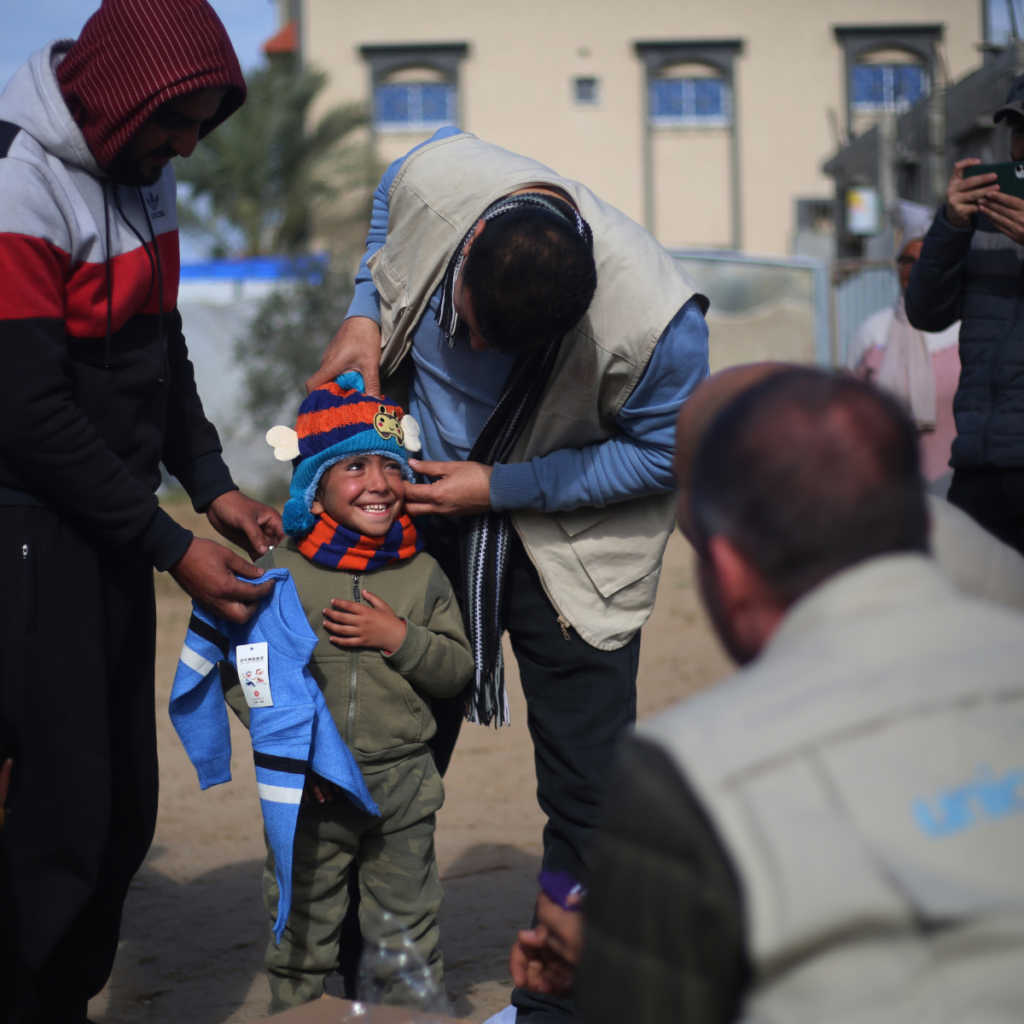The past several months of conflict in the Gaza Strip has taken an unconscionable toll on families and children, who have endured constant bombardments and severe shortages of necessities.
UNICEF was standing by with a emergency relief operation the moment the ceasefire took effect. Within the first week, UNICEF managed to bring more than 350 trucks into Gaza, carrying water, hygiene kits, treatment for malnutrition, warm clothing, tarpaulins, and other essential humanitarian aid.
This operation is supported by the Grundfos Foundation, who donated DKK 5 million to UNICEF’s efforts for families and children in Gaza.
“The children and their families in Gaza have paid an unbearably high price for the conflict between Israel and Hamas over the past year. Already last spring, we decided to allocate 5 million kroner to UNICEF’s efforts in the area, as it has been crucial that convoys with life-saving aid could reach the many civilian victims. Hopefully, peace and reconstruction now lie ahead. We hope that more people will support the humanitarian effort so that Gaza’s children can look forward to a safer future,” says Kim Skibsted, Executive Director of the Grundfos Foundation.

Within the first week, UNICEF managed to bring more than 350 trucks into Gaza, carrying water, hygiene kits, treatment for malnutrition, warm clothing, tarpaulins, and other essential humanitarian aid. Photo: UNICEF
Some of UNICEF’s Key Deliveries in Gaza Include:
- Food and Nutrition: More than 90% of Gaza’s population is facing acute food insecurity. UNICEF has intensified the distribution of highly nutritious food to infants, children, and breastfeeding mothers.
- Clean Water and Sanitation: Destroyed water supplies have led to the spread of disease, and UNICEF has worked to restore water systems. This requires pumps, generators, and cement, among other supplies. Additionally, millions of liters of clean water have been delivered to the hardest-hit areas.
- Medicine and Medical Equipment: Hospitals in Gaza are overwhelmed and lack basic supplies. UNICEF has sent medicine and other equipment to treat both wounded and malnourished children.
The ceasefire is the first step in a broader effort to help Gaza’s children toward a safer future. Infrastructure, healthcare systems, and schools are in ruins, and the humanitarian needs far exceed the current resources. UNICEF continues to call for ongoing support to give Gaza’s children a real chance to survive and to believe in and dream about their future again.
“Thanks to support from partners like the Grundfos Foundation, trucks are now entering Gaza with life-saving aid for children and families. The children in Gaza urgently need basic services such as water, food, medicine, and sanitation. I would therefore like to extend my deepest thanks to the Grundfos Foundation for taking the lead in supporting UNICEF’s efforts,” says Susanne Dahl, Secretary General of UNICEF Denmark.

